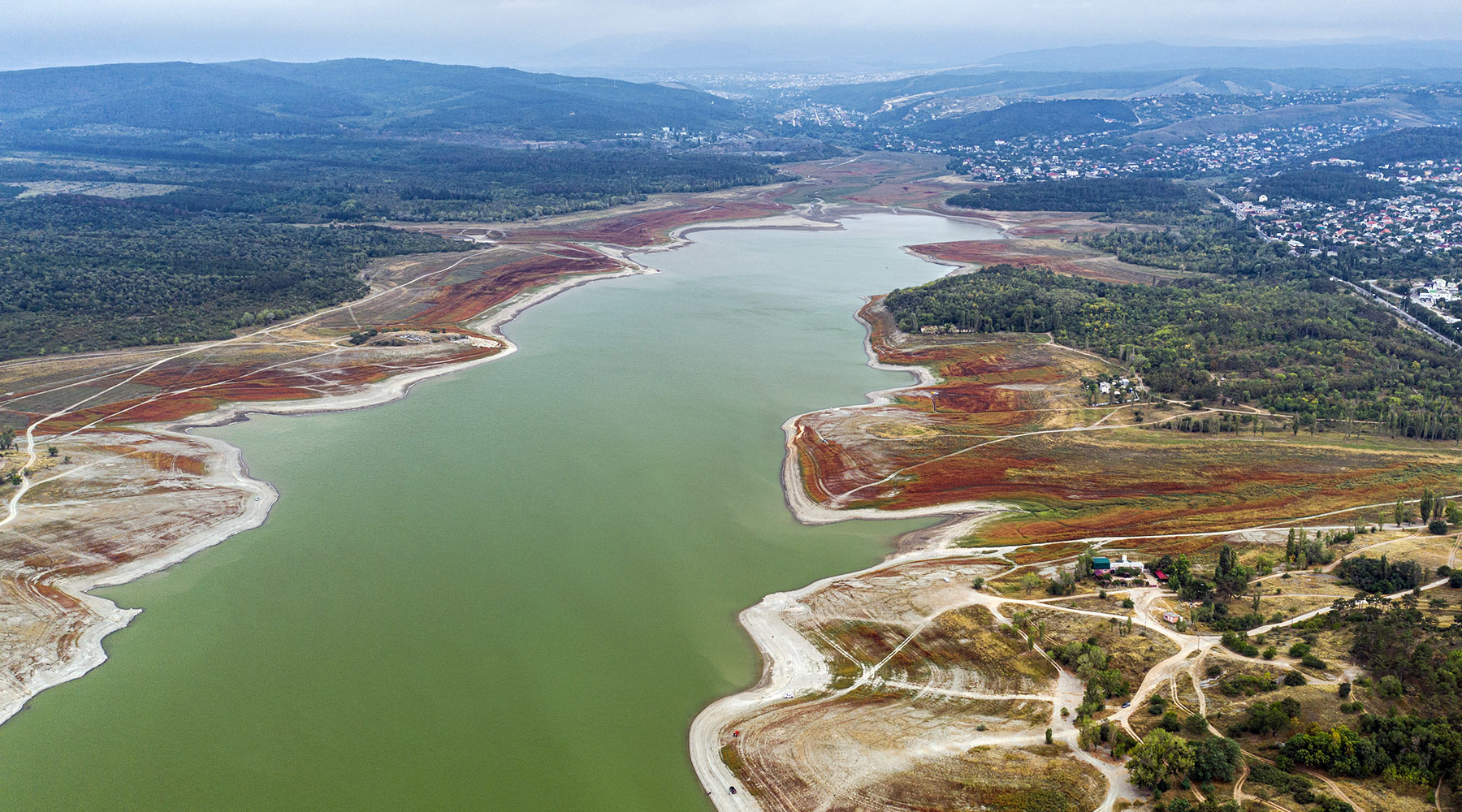In Simferopol, from Monday, September 7, the hourly schedule of water supply began to operate.
The same measure entered into force in 39 settlements of the Simferopol and Bakhchisarai regions.
Recall that on August 24, a phased regime of limiting water supply began in the republic due to drought and shallow water reservoirs.
At the third stage, water on the peninsula will be supplied hourly in the morning and evening.
The head of the Simferopol administration Elena Protsenko explained that due to the restrictions introduced, water consumption will decrease to 100 thousand cubic meters per day, while earlier it was 160 thousand cubic meters.
“We are correcting the installation locations of the tanks.
On September 2, a trial delivery of water was carried out, bottlenecks were identified.
The problems are mainly related to the convenience of water delivery by tank trucks.
I draw the attention of Simferopol residents - the tanks are mainly designed to provide water during the transition to the third stage of water supply or in case of an emergency in a particular microdistrict, ”Protsenko said.
Also, the head of Crimea, Sergei Aksyonov, instructed to launch all elevators in the city for the period of restrictions so that residents can carry water to the upper floors of houses.
In addition, he ordered the authorities to respond to citizens' appeals within an hour.
RIA News
© Konstantin Mikhalchevsky
On September 2, during a meeting of the republican government, Aksyonov said that an operational headquarters for water supply had been created on the peninsula due to the tense situation with water.
According to the head of the republic, it is planned to send water from five more wells to the Simferopol reservoir in October to provide an additional 10 thousand cubic meters of water per day.
In addition, the Ministry of Defense will increase the capacity of pumping stations on a temporary 60-kilometer pipeline laid from the Taigan to the Simferopol reservoir, Aksenov said.
“To increase the volume of water pumping to the Simferopol reservoir.
We will deal with the situation one way or another.
It will be difficult for some period, but I am sure that we will come out of this situation with honor.
The main principle is that all the water that is available is a common property and must be distributed fairly, ”the head of Crimea stressed.
Let us recall that difficulties with the water supply of Crimea arose in 2014.
Crimea became a Russian region after a referendum held there in March 2014, in which most residents voted in favor of reunification with Russia.
After that, Ukraine unilaterally cut off the water from the Kherson region coming through the North Crimean canal.
At the moment, residents and enterprises of the region receive water from local sources, but over the past year they have become significantly shallower due to the low amount of precipitation, as well as drilling and water extraction from underground sources.
Meanwhile, Elizabeth Throssell, spokeswoman for the Office of the UN High Commissioner for Human Rights, said that both Russia and Ukraine are responsible for providing clean drinking water to Crimeans.
"The right to safe and clean drinking water and sanitation has been recognized by the UN General Assembly as one of the human rights necessary for a full life," RIA Novosti quoted her as saying.
According to her, the office of the UN High Commissioner believes that Russia "bears the main responsibility for ensuring access to water for the protected population of Crimea."
At the same time, she noted that Ukraine, according to international law, is obliged to support the implementation of economic, social and cultural rights.
Recall that in May, during a meeting of the UN Security Council on the situation in Crimea, Permanent Representative of the Russian Federation Vasily Nebenzya stressed that Ukraine itself in 2014 opened the way to the reunification of the peninsula with Russia.
The meeting was also attended by representatives of the republic, who, among other things, called on the UN to respond to the energy and water blockade of the peninsula by Ukraine.
“This topic is rarely heard in the world media.
But there is something to talk about.
How in the 21st century can you turn off water and electricity for 2.5 million people?
For six years, water has not been supplied to Crimea through the North Crimean Canal, which was built by many countries.
All this contradicts all the foundations of international law, ”said Ervin Musaev, a deputy of the Bakhchisarai City Council.
It is worth noting that in March, the head of the Ukrainian government, Denis Shmygal, commented on the issue of possible water supplies to Crimea three times a day.
At first he said that they were needed, otherwise a "humanitarian catastrophe" could occur.
The next day, he corrected his words, admitting that Kiev did not have the "technical capability" for such a water supply.
Then the prime minister said that Ukraine would supply water "if necessary."

